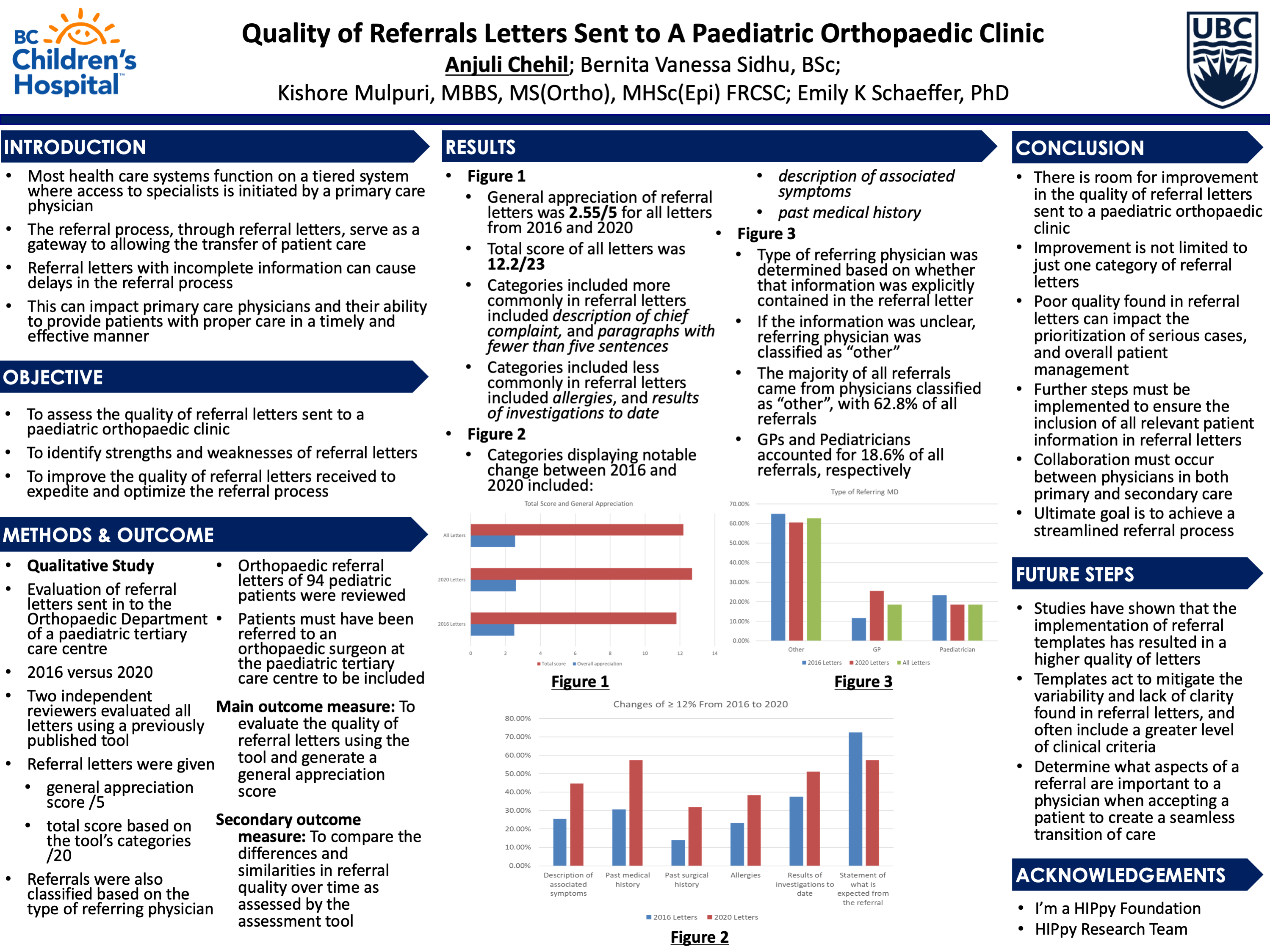SRFP084: Quality of Referral Letters sent to a Paediatric Orthopaedic Clinic (Pearls)
Ashley Munoz; Bernita Vanessa Sidhu; Anjuli Chehil; Emily Schaeffer, PhD; Kishore Mulpuri, MBBS, MS, MSc
Abstract
Objective: The objective of this study is to assess the quality of referral letters sent to a paediatric orthopaedic clinic. By identifying strengths and weaknesses of these letters, our goal is to improve the quality of referral letters received to expedite and optimize the referral process.
Study Design: This is a qualitative study based on the evaluation of referral letters from the years 2016 and 2020. Two independent reviewers evaluated all letters using a previously published tool. Referral letters were given a general appreciation score as well as a total score comprising all categories in the previously published tool.
Setting: The study was conducted in the Orthopaedic Department at a pediatric tertiary care centre.
Intervention/Instrument: N/A
Main and Secondary Outcome Measures: Main: To evaluate the quality of referral letters as assessed by the tool and a general appreciation score. Secondary: To compare the difference in referral quality over time as assessed by the assessment tool.
Population Studied: Orthopaedic referral letters of 94 paediatric patients were reviewed. Patients came from a variety of demographic backgrounds. Patients must have been referred to an orthopaedic surgeon at the pediatric tertiary care centre to be included.
Results: General appreciation of referral letters was 2.55/5 for all letters from 2016 and 2020. Categories displaying notable change between 2016 and 2020 included statement expected from the referral, and description of associated symptoms.
Expected Outcomes: There is evident room for improvement in the quality of referral letters sent to a paediatric orthopaedic clinic. Poor quality found in referral letters can impact the prioritization of serious cases, and overall patient management. Further steps must be implemented to ensure the inclusion of all relevant patient information in referral letters, achieving a more streamlined referral process.

Jack Westfall
jwestfall@aafp.org 11/21/2021interesting study. what comes next? hope to see more of this project at future NAPCRGs. thanks.